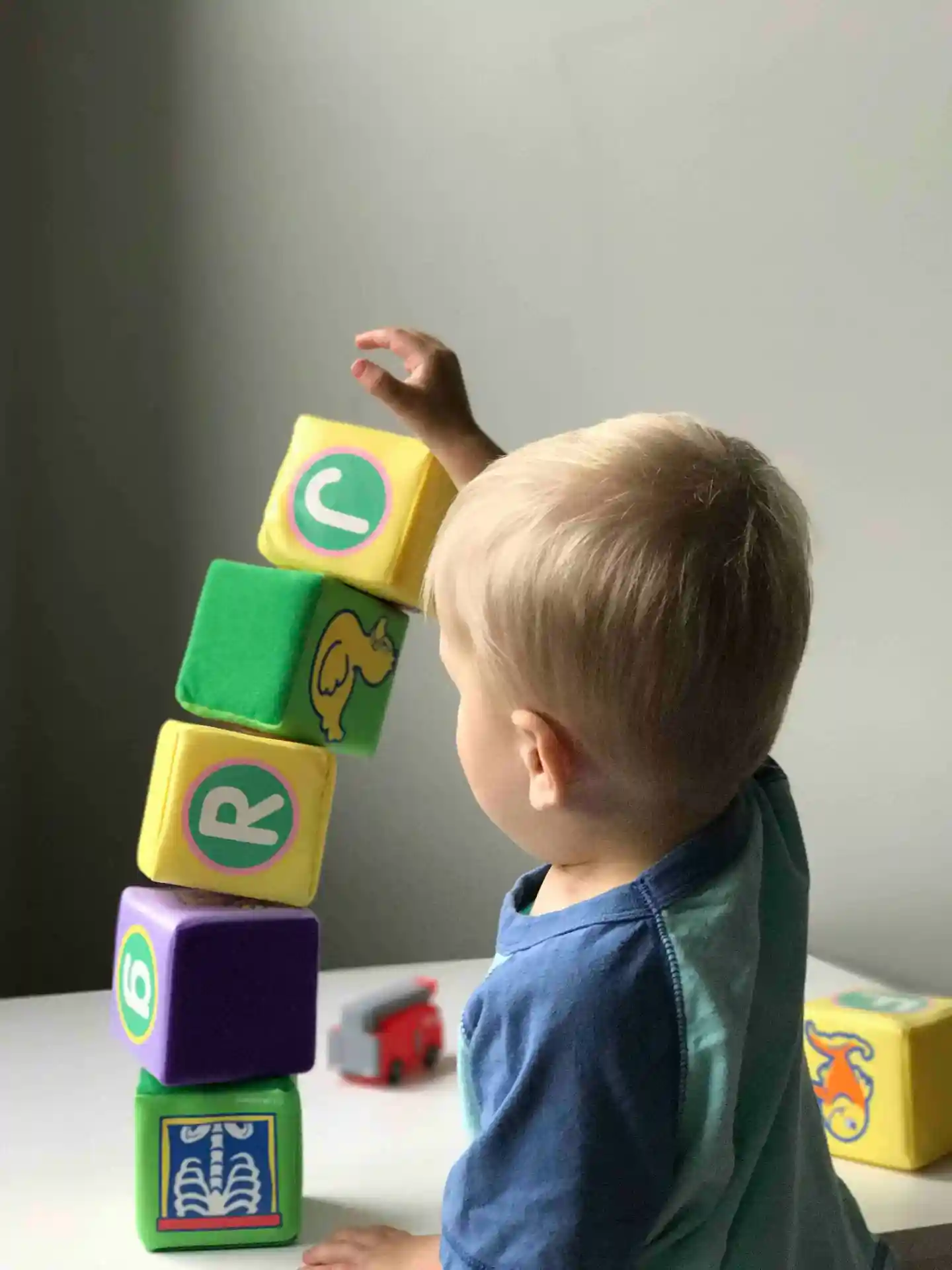
Understanding Object Permanence and ADHD Explore how object permanence
interacts with ADHD and affects daily functioning.
The Concept of Object Permanence: What You Need to Know
Object permanence is the cognitive skill that allows individuals to understand that objects continue to exist even when they are not visible. This concept is fundamental in developmental psychology and typically emerges during infancy. It is crucial for memory and problem-solving skills, as it enables individuals to remember the location of items and anticipate their presence.
For example, a baby who has developed object permanence will search for a toy that is hidden under a blanket because they understand that the toy still exists even though it is out of sight. This ability lays the groundwork for more complex cognitive processes, such as understanding that people and objects continue to exist even when they are not immediately perceivable.
Impact of ADHD on Object Permanence and Cognitive Functions
ADHD (Attention-Deficit/Hyperactivity Disorder) is characterized by symptoms of inattention, hyperactivity, and impulsivity. While object permanence itself is not a direct symptom of ADHD, the attentional and memory challenges associated with ADHD can impact how individuals manage object permanence.
People with ADHD may struggle with sustained attention, which can make it difficult to maintain focus on tasks or objects that are not immediately visible. This difficulty can result in problems with memory and organizational skills, affecting their ability to manage daily tasks and responsibilities effectively.
For example, an individual with ADHD might forget where they placed important items or struggle to recall tasks they need to complete because their attention is easily diverted. This can lead to frustration and difficulties in both personal and professional settings.
Challenges with Object Permanence in ADHD Individuals with ADHD may
encounter several specific challenges related to object permanence:
Difficulty Sustaining Attention and Awareness
ADHD often involves challenges with sustaining attention, which can make it hard to stay aware of objects or tasks that are out of sight. This can lead to problems with remembering where items are placed or completing tasks that require attention to detail.
Memory Challenges Affecting Daily Functioning
Working memory difficulties are common in ADHD, affecting the ability to keep track of objects or tasks. This can result in frequent misplacement of items and forgotten appointments or deadlines.
Impact of Disorganization on Cognitive Processes
ADHD can lead to disorganization, making it difficult to maintain an orderly environment. This disorganization can exacerbate issues with object permanence, as misplaced items and chaotic surroundings can further disrupt memory and attention.
How Impulsivity Compounds Object Permanence Issues
Impulsive behaviors can lead to quick decisions without considering long-term consequences, including forgetting about tasks or items that were initially intended to be managed. This impulsivity can further impact the ability to maintain awareness of objects and responsibilities.
Effective Strategies for Managing ADHD-Related Object Permanence Issues
Addressing object permanence challenges in ADHD involves implementing strategies to improve attention, memory, and organization. Here are some effective approaches:
Utilizing Visual Reminders for Better Organization
Use visual aids such as labels, color-coded folders, and sticky notes to keep track of important items and tasks. Visual reminders can help reinforce memory and keep essential information in view.
Establishing Consistent Routines for Improved Management
Establishing consistent routines and organizational systems can help manage ADHD symptoms and improve daily functioning. Consistent habits can reduce the likelihood of forgetting tasks and misplacing items.
Leveraging Technology for Enhanced Task Management
Utilize digital tools and apps designed for scheduling, reminders, and task management. Apps that offer notifications and alerts can help keep track of deadlines and appointments, providing additional support for memory and organization.
Maintaining an Organized Environment to Minimize Distractions
Maintain a clutter-free and organized environment to minimize distractions and reduce the likelihood of misplacing items. Implementing organizational systems, such as designated spaces for commonly used items, can enhance object permanence management.
Applying Behavioral Techniques to Improve Focus
Techniques such as mindfulness and cognitive-behavioral strategies can help improve focus and attention. These methods can assist individuals in managing ADHD symptoms and enhancing their ability to maintain object permanence.
Seeking Professional Guidance for Personalized Support
Working with a therapist or ADHD coach can provide personalized strategies and support. Professional guidance can help address specific challenges related to object permanence and develop effective coping mechanisms.
When to Seek Professional Help for ADHD-Related Object Permanence Issues
If challenges with object permanence and ADHD significantly impact your daily life, seeking professional help can be beneficial. A mental health professional can conduct a comprehensive assessment and develop a tailored treatment plan to address your specific needs.
Therapy can help individuals with ADHD improve organizational skills, enhance memory, and develop effective coping strategies. With professional support, individuals can better manage ADHD symptoms and improve overall quality of life.
Integrative Family Counseling and Psychology offers specialized services for individuals with ADHD. Our experienced therapists can work with you to develop strategies for managing ADHD-related challenges and achieving your personal and professional goals.
Expert Therapists Specializing in ADHD Our compassionate team is ready to
help you manage ADHD challenges and improve your daily life.
Meet Some of Our Expert Therapists

Juliana Morgan
I believe that change and growth can happen and aim to guide my client's on their path of discovery. I value the therapeutic relationship and seek to provide a safe, empathetic, and authentic healing environment.
View Juliana's Profile
Precious Bradley
I bring a unique approach to my clinical work, empathizing with vulnerability as a key aspect, complemented by a strong sense of empathy and curiosity. I have a deep passion for the therapeutic process and a firm believer in the transformative power of change. I have spent years working with folks who are struggling with many different mental health issues.
View Precious's Profile
Irina Salabai
I deliver care that is empathetic, compassionate and evidence-based. I take time to listen and to understand each person's unique needs. I aim to provide and maintain a safe, non-judgmental, holistic and supportive therapeutic environment.
View Irina's Profile
Elizabeth Turek
I have experience working with a diverse group of people. I can work effectively and constructively with people from all races, diverse cultures, family systems, and social backgrounds. I focus on a Client-Centered approach and a Gestalt approach that focuses on the present. In addition to being traditionally trained, I incorporate a holistic, integrative approach toward psychotherapy, including aspects of mindfulness, and a holistic approach with Spiritual philosophy.
View Elizabeth's Profile
Tom Malczyk
I provide a compassionate, warm, and easy going approach to therapy. My role is to help you define, navigate and overcome the obstacles holding you back from living your most authentic and meaningful life. It is an honor to walk beside each client on their journey of self-healing, restored balance and renewed connection.
View Tom's ProfileInsurance Coverage Made Simple
We accept most major insurance plans and offer low self-pay rates to ensure quality care is accessible to everyone. Your well-being is our priority, and we're here to help regardless of your financial situation.
FAQ: Common Questions About Object Permanence ADHD
Is object permanence a symptom of ADHD?
What is ADHD object permanence?
What is object permanence ADHD?
What is object permanence in ADHD?
Do people with ADHD have object permanence?
Related Articles

Adult Child Syndrome: Signs, Origins, and Solutions
Adult Child Syndrome arises from growing up in dysfunctional environments and affects various aspects of life. Discover the key symptoms, underlying causes, and treatment strategies to address this condition effectively.

Childrens Therapy Solutions: Effective Approaches for Young Minds
Discover various childrens therapy solutions designed to support emotional and psychological development. This guide explores effective techniques and approaches to help young minds thrive.

Initiative vs Guilt: Navigating Erikson's Third Stage
Erikson's Initiative vs Guilt stage explained. Learn how to navigate this developmental phase and foster healthy development.

How Will Counseling Services Help Academic Stress?
Academic stress can be overwhelming. Counseling services offer effective tools and support to manage stress and improve academic well-being. Find a therapist near you.

